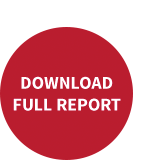EVALUATION REPORTS
USAID’s Bureau of Humanitarian Assistance (BHA) in Manila requested CLAimDev to conduct desk research to help it better understand the key results achieved, lessons learned, and beneficiary feedback from its Early Recovery, Risk Reduction, and Resilience (ER4) approach in the Philippines by documenting the key disaster risk reduction strategies adopted by its implementing partners. The objective of the study was to provide data and information to inform future BHA priorities, including approaches for better integration of ER4 into disaster responses with international and the host government’s humanitarian system and stakeholders.
The desk research study included 32 BHA Manila awards from 2015 through 2022. Twenty-one of the awards had submitted written reports that CLAimDev reviewed to provide USAID with summarized information on its ER4 programs. The review collated information on the range and location of the assistance awards, the types of interventions and programs, the beneficiaries of the award, the results and enhancing factors in the interventions, award alignment with USAID initiatives such as localization and private sector engagement, identified good practices, unmet needs and challenges, gaps in assistance and missed opportunities, and lessons learned from the awards.
The study found that all the awards included capacity development in their interventions, with trainings and workshops as the most common type of capacity development, followed by technical assistance and supporting the development of plans. Other typical interventions, present in somewhat less than half of the awards, were emergency response enhancement and livelihood-centered interventions. Collaboration and partnership interventions were less frequently part of the ER4 awards.
The award reports provided insight into the types of implementation issues that USAID’s partners faced. The most frequent issues reported were a lack of institutional support from the awardees’ counterparts and stakeholders and the COVID-19 pandemic. A few awardees noted issues related to a lack of manpower or capacity on the part of the implementer and site conditions such as weather and security.
Some emerging good practices include scaling up and horizontal or vertical expansion of interventions and establishing horizontal or vertical linkages with other stakeholders. Another emerging good practice noted in the reports is the importance of building a base of assets before a crisis to support a crisis response.



